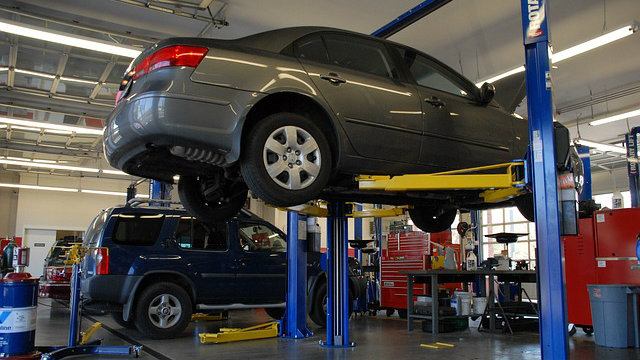AutoCanada Inc. (TSX:ACQ) is a Canadian multi-location automobile dealership company which operates across eight provinces. The stock is down almost 80% from its 2014 high and has been an intriguing contrarian play for investors looking for a cyclical upswing. Unfortunately, contrarians have had nothing but disappointment lately as the stock continues tumbling below what many thought was a bottom.
Canadian auto dealerships are very fragmented, and AutoCanada has the goal of consolidating this industry through acquisitions. Consolidating a fragmented industry via acquisitions has been a successful model for many companies in the past, but what makes AutoCanada different? Why does the stock continue to fall farther into the abyss?
The growth-by-acquisition model hasn’t quite worked for AutoCanada. Normally, acquisitions are supposed to result in an increase in free cash flow, but this has not been the case for AutoCanada as the company reported a large plunge in free cash flow to $0.64 million for Q1 2017 — down from $4.05 million during the same period last year.
The management team needs to reconsider the strategy because the consolidation model doesn’t seem to be working out. Plummeting free cash flow is never good for value creation, so the management team needs to find a way to stop the bleeding before things start get uglier.
The company had an executive shake-up earlier this year, but I don’t think it will mean much in the medium term as the company is facing way too many headwinds right now, and a complete business model change is unlikely.
Albertan economy likely to remain weak for longer
AutoCanada operates in many Canadian provinces, but unfortunately, most of the company’s dealerships are located in Alberta. Alberta has been an absolutely horrid place to have cyclical exposure to following the rout in oil prices. Many Albertans have been struggling to make ends meet, and buying a new or used vehicle is probably the last thing on their minds right now.
Although President Trump’s pro-business agenda will likely give Canada a boost, his protectionist policies are more likely to hurt Canada’ energy sector, which will end up hurting the Albertan economy and car dealerships operating in Alberta.
Other headwinds
Fellow Fool contributor Chris MacDonald believes that the rise of ride-sharing technologies like Uber will probably lessen the need for the average Canadian to own a car.
Takeaway
Sure, AutoCanada looks cheap, but I think there are way too many headwinds and not enough catalysts that could send the stock higher over the medium term, and for these reasons, I’m staying on the sidelines.
Stay smart. Stay hungry. Stay Foolish.








